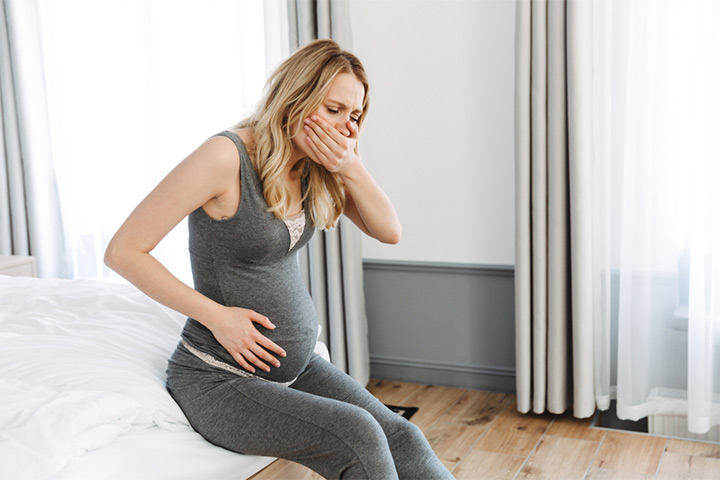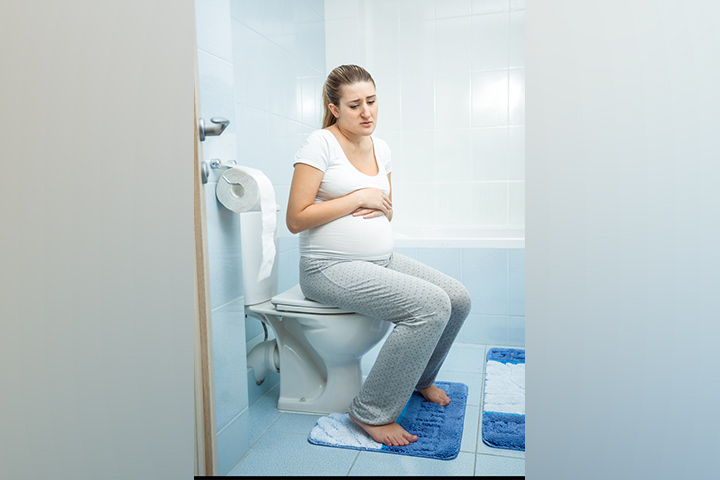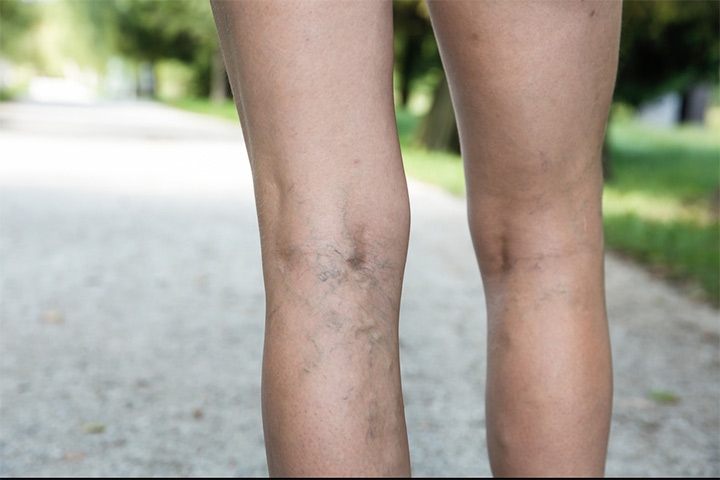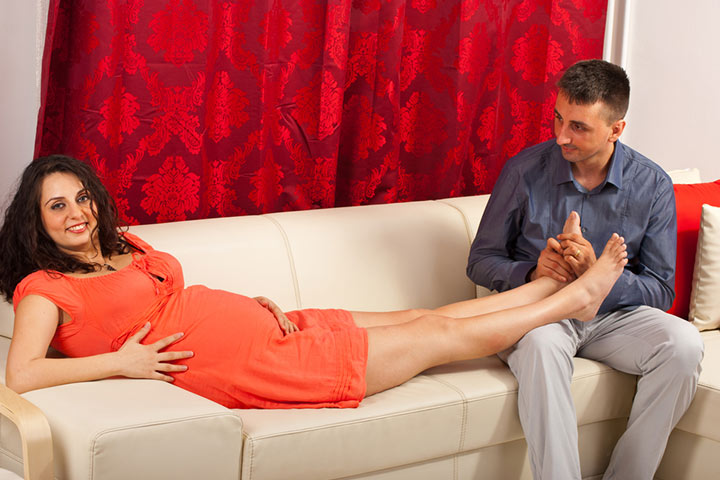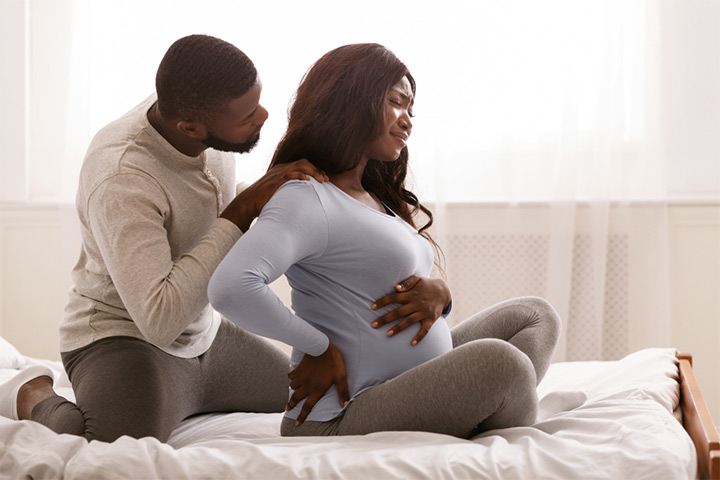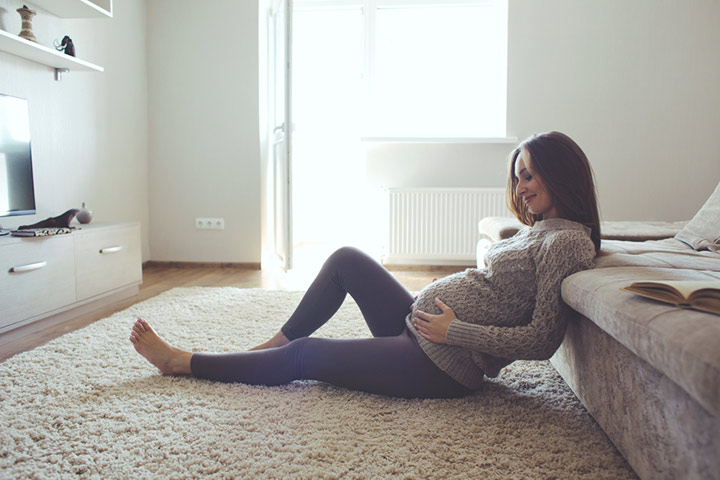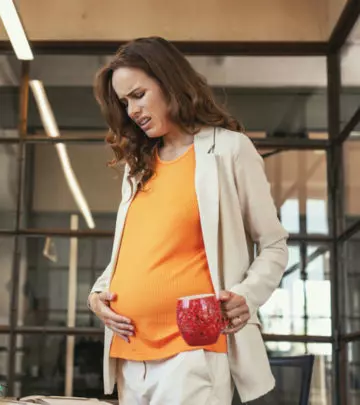
Image: Shutterstock
Your body goes through a whole lot of changes during pregnancy. You might have done your share of homework and prepared yourself mentally for all the changes that will occur, but that doesn’t mean that they are not challenging, uncomfortable, and irritating. In those 9 months of pregnancy, the number of things a woman experiences differs from each person. It depends on many factors, including diet, level of activity, amount of sleep, genetics, and lifestyle, but there are some common discomforts that every woman goes through. They might happen at different points during the pregnancy term, but most women experience them. So, if you are asking yourself, “why me”, don’t worry, you are not alone. Here are the 7 most common discomforts faced by moms-to-be:
1. Morning Sickness
One of the most common discomforts of pregnancy is nausea and vomiting. It might be called “morning” sickness, but it is not restricted to the morning and can strike at any time during the day. It usually occurs in the first trimester and happens due to the hormonal changes during pregnancy. You might not be able to get rid of nausea but snacking throughout the day and sipping on ginger ale helps keep it at bay (1).
2. Heartburn And Indigestion
If you experience a burning sensation in your chest and feel bloated, full, or heavy, don’t worry, you are not alone. Heartburn and indigestion are common during pregnancy. It is caused because your growing baby presses against your stomach. Changing your lifestyle and switching to healthier eating options may help ease your discomfort (2).
3. Bladder Problems
Being pregnant affects your bladder and bowel health. During pregnancy, your growing baby adds a lot of pressure to your bladder by pressing against it, leading to urine leakage. It sometimes does not stop after childbirth because of weakened pelvic muscles and damaged pelvic nerves. Kegel exercises are often recommended to regain bladder control and healthy bowel movements (3).
4. Varicose Veins
Varicose veins develop during pregnancy because of the extra strainput on your veins due to an increased blood volume to accommodate the growing baby. The change in hormonal levels relaxes the veins, which also increases the risk. When your womb begins to expand, there is an added pressure on the veins in your pelvic area, which leads to the formation of varicose veins. However, most pregnant women find that their veinsimprove after childbirth (4).
5. Leg Cramps
Painful and uncomfortable, leg cramps affect the calf, foot, or sometimes both. They often strike at night during the second and third trimester. While the exact cause of leg cramps is unknown, many suggest that it happens due to carrying extra weight, metabolism changes, being too active or inactive, and perhaps having a vitamin deficiency. Ask your partner to help you ease leg cramps by stretching the leg muscles, rubbing the area firmly, or pulling the toes up towards the ankle (5).
6. Backache
You might experience severe backache during pregnancy because of the strain on the joints of your lower back and pelvis. To prepare you for labor, the ligaments in your body stretch and become softer, causing the strain. Avoid lifting heavy objects, wear flat shoes, use maternity pillows for support when seated at home or work, and use a mattress that supports you well during pregnancy to ease the painful backaches (6).
7. Changes In Skin And Hair
With the fluctuations in hormones and blood flow, your skin and hair changes during pregnancy. Some women develop chloasma, a.k.a melasma, during pregnancy. It is also called a “mask of pregnancy”, but it usually disappears after. Wearing sunscreen and protecting your skin from dust, pollution, and harmful chemicals might reduce the risk of melasma development. Many women also develop stretch marks, especially during the third trimester. Your hair might become thicker and greasy, which will fall out after childbirth (7).
Being pregnant is more than just carrying a baby in your womb for 9 months. Your body goes through several changes, and you cannot help but feel disheartened with some of them. But you’re not alone in feeling this way, and you don’t have to feel guilty about it. Besides, when you hold your little one in your arms after the long anticipated wait, everything will be worth it. What discomforts did you find most difficult to deal with during your pregnancy? Comment below and let us know.

